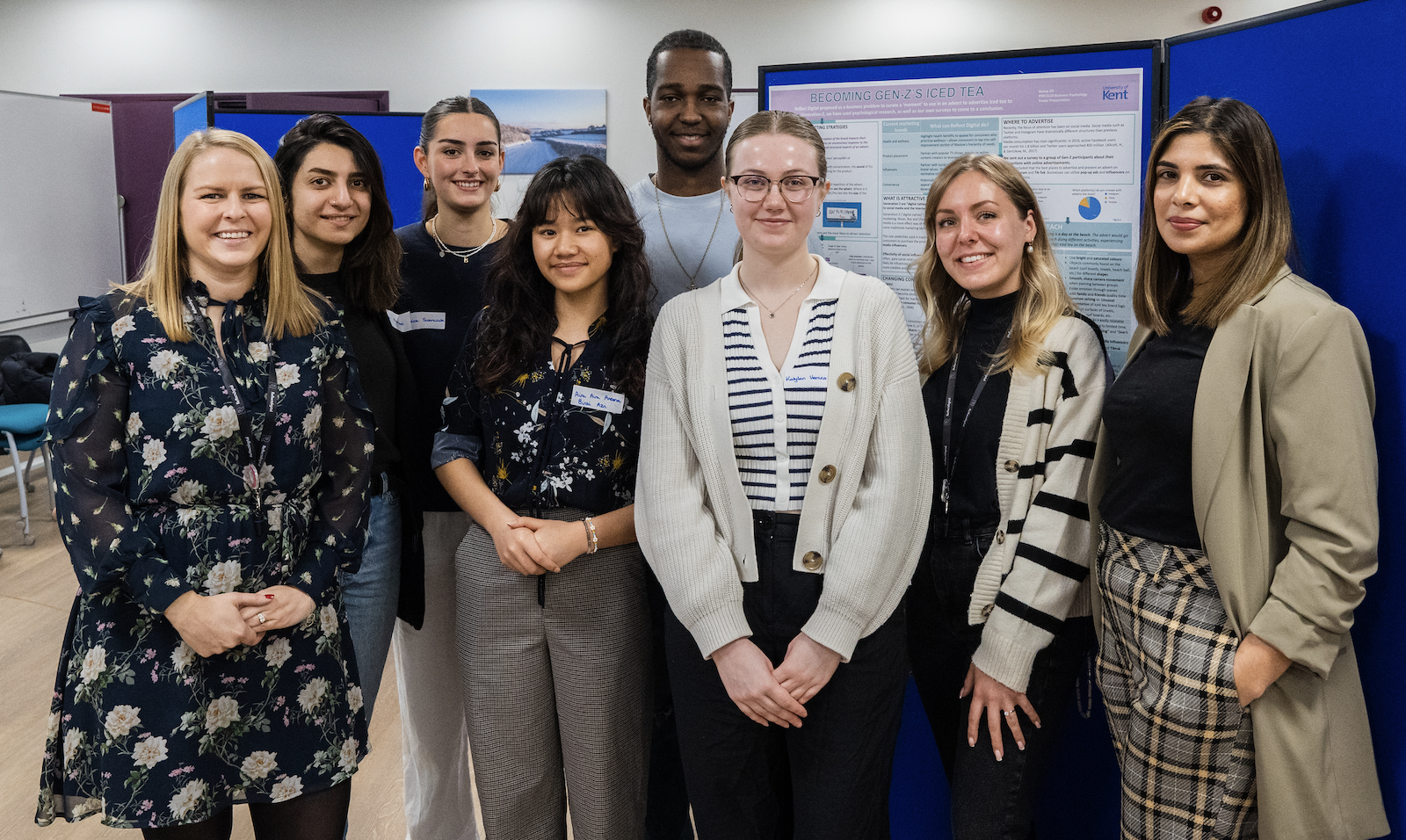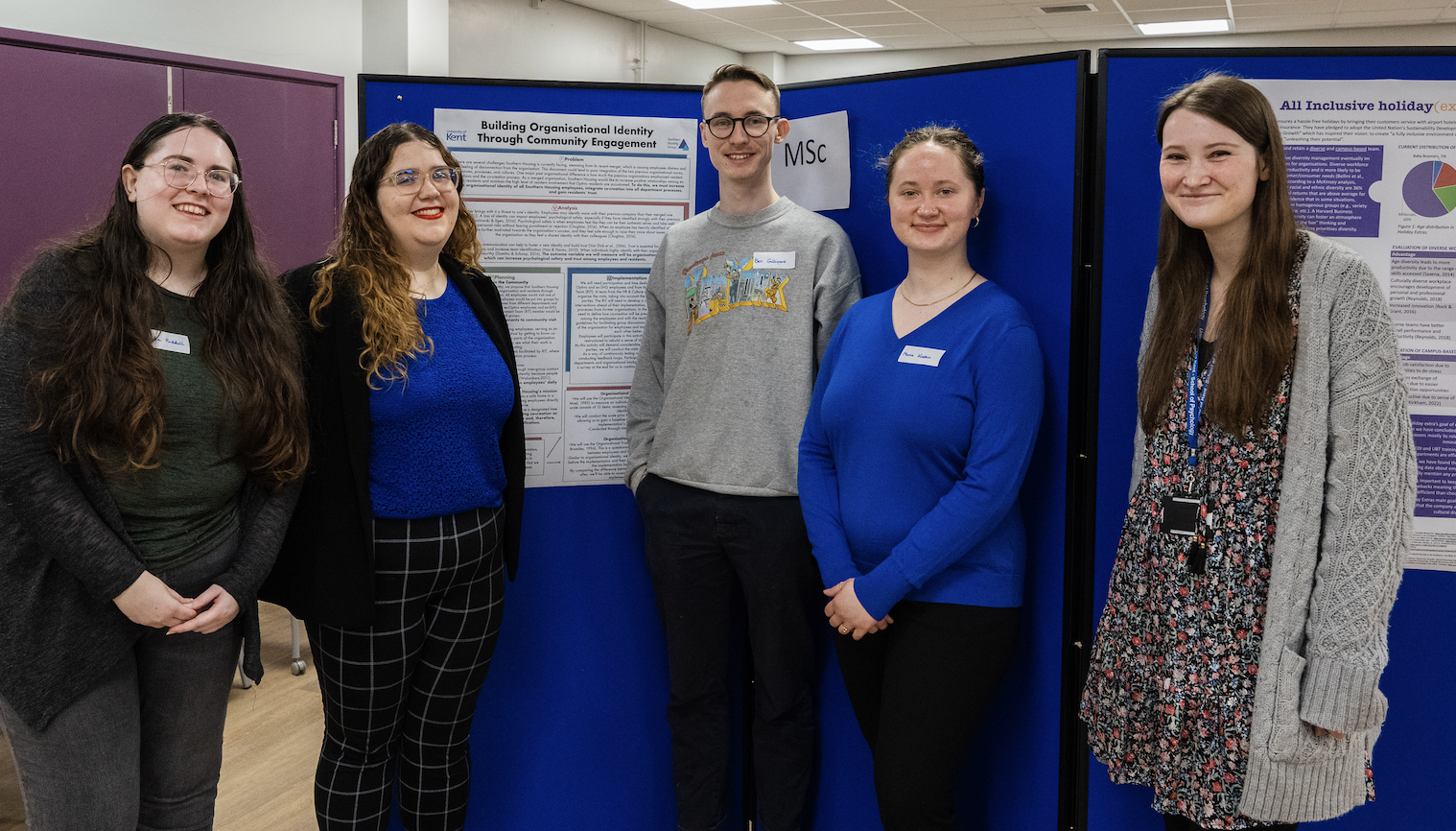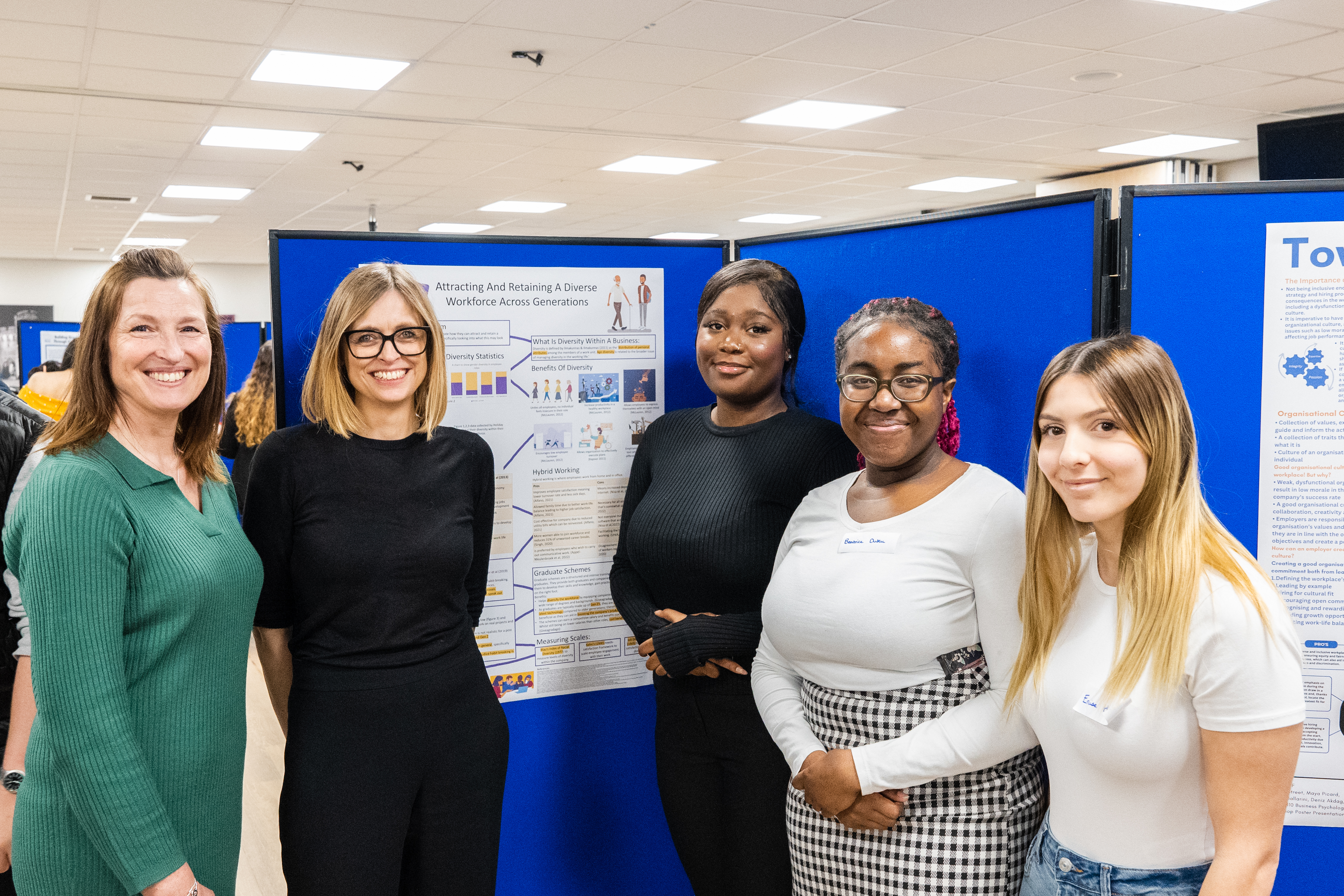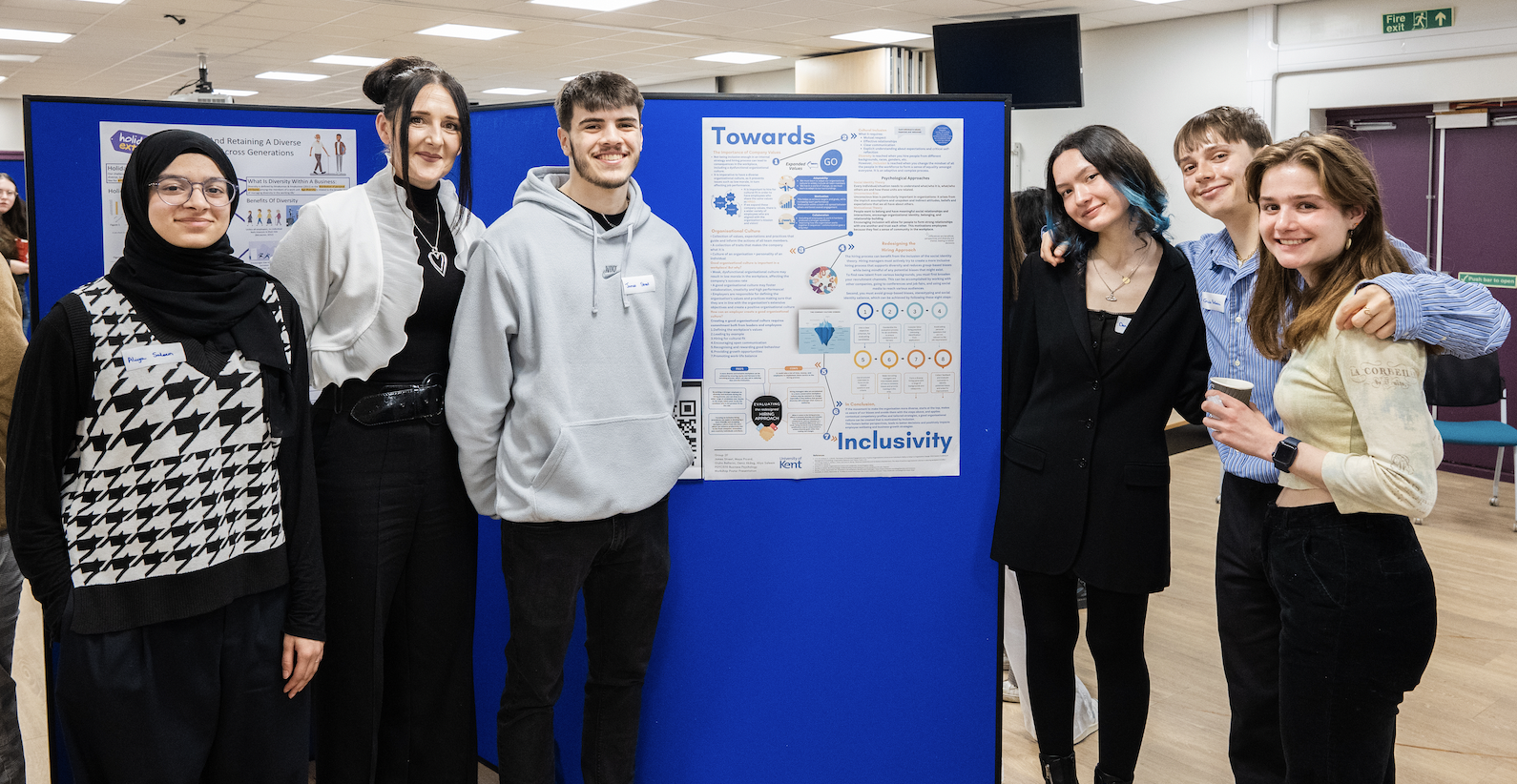MSc students Maria Koskin and Sarah Resanovich write about their experience studying Advanced Topics in Business Psychology module.
‘As a part of the ‘Advanced Topics in Business Psychology’ module, we were given the task of solving a real business problem, using a consultancy model to find a practical and feasible solution. Starting with a case study highlighting the issues that the company is facing, we started brainstorming as a group of five. The group allowed us to bring different perspectives and ideas in the discussion. The consultancy cycle we used followed five stages: problem, analysis, planning, implementation, and testing. Our group attended two in-class workshops, which provided us with the opportunity to ask questions to a business representative of the company.
To deliver our solution, we created a poster outlining its components and we participated in a conference-style presentation. It was challenging to abridge our solution but this allowed us to have a better picture of the solution, present our work, and get feedback in real time.
The event was an important demonstration of the scientist-practitioner model that many organisational psychologists work within.
“This hands-on exercise has been a great experience for me! It gave me an understanding of what it means to work on a problem that actively affects people, work on finding a practical and feasible solution, with a specific deadline, while collaborating as a group to come to our end product.” – Maria Koskin
We had to justify our projects both on research-backed theoretical grounds and the practical context.
A mix of academics and professionals attended the event. Each person we presented to had their own experiences informing their questions – it was vital that we could address our proposals from multiple angles. This is where the consultancy framework proved essential as we had one conversation surrounding the analysis stage – “what is the connection between Social Identity Theory and psychological safety?”. Yet, another conversation was entirely surrounding planning and implementation – explaining what logistical challenges we face due to current global and national economic conditions.
“After this programme, I am pursuing a PhD in Psychology. This class not only helped me hone my critical analysis skills but has taught me how to apply psychological theory to create practical solutions for organisational challenges. These skills will help me ensure that my future research has both theoretical and practical implications.” – Sarah Resanovich
Applying our studies directly to a business challenge allowed us to bring everything we have been learning out of the classroom into an organisational context. The training we received from this project will be crucial for whatever future career path we pursue. For those who want to pursue a career in industry, it will be essential to explain scientific research to non-academic audiences and apply psychological theory practically and feasible within organisations. For those pursuing careers in academic research, it is important to understand the organisational context in which psychological theories play out in businesses. Bringing organisational challenges into the classroom created a holistic learning experience.’
Maria Koskin and Sarah Resanovich are studying for a MSc in Organisational and Business Psychology.




